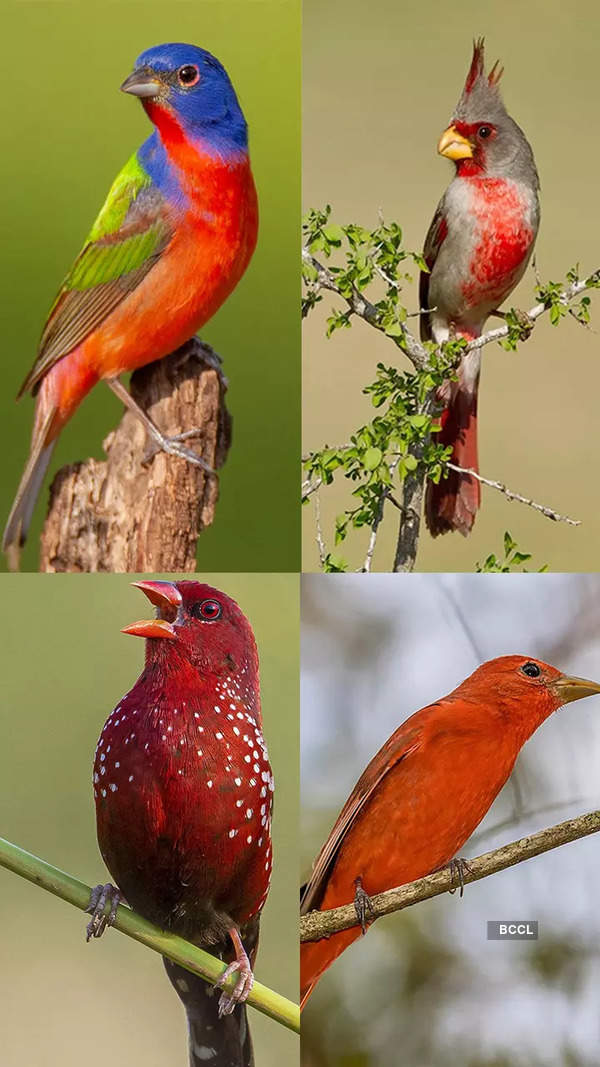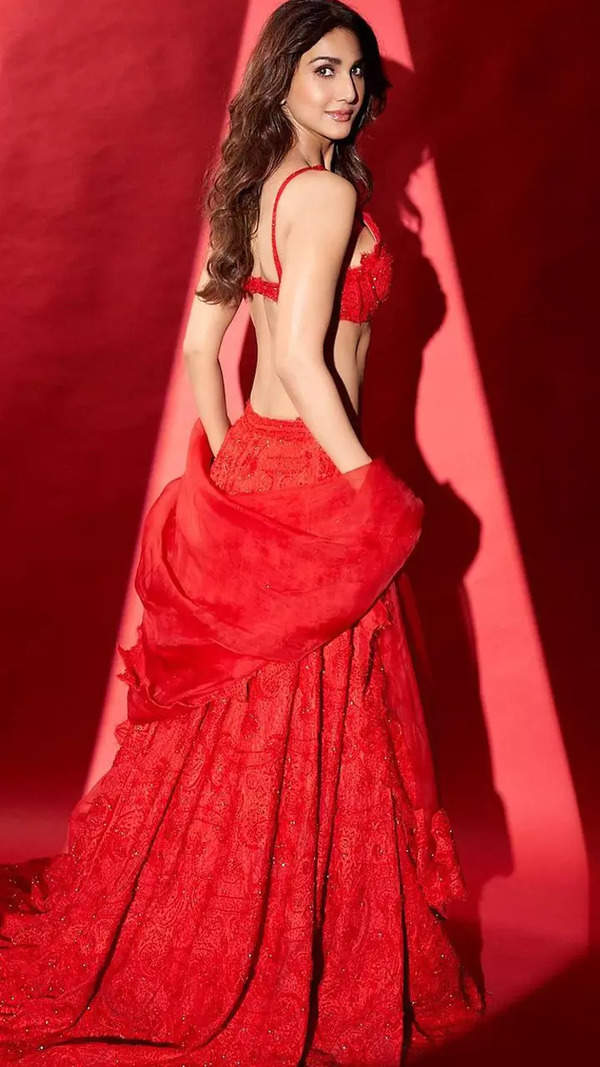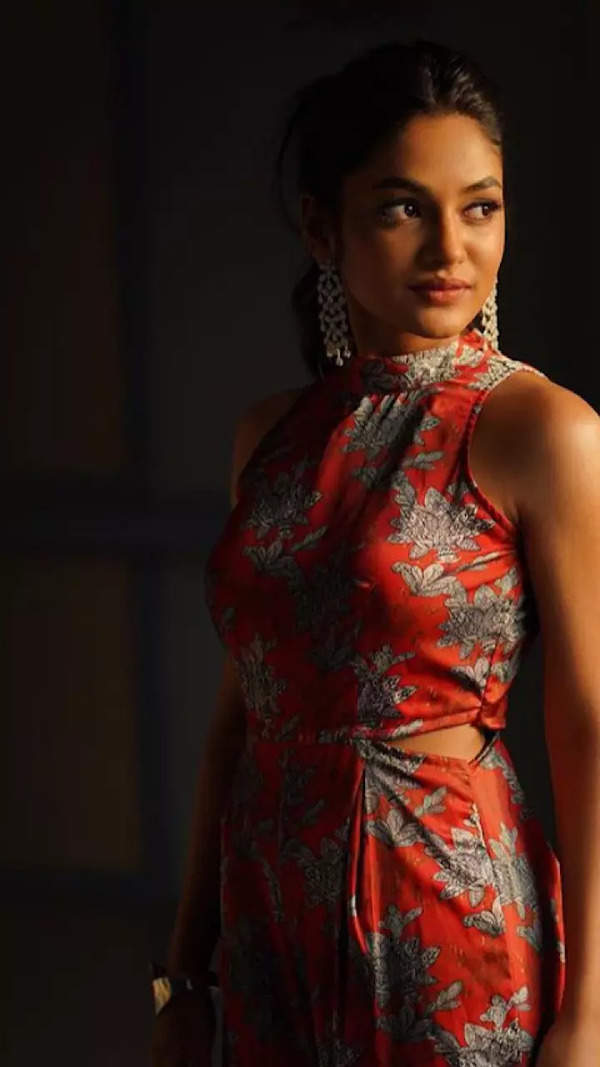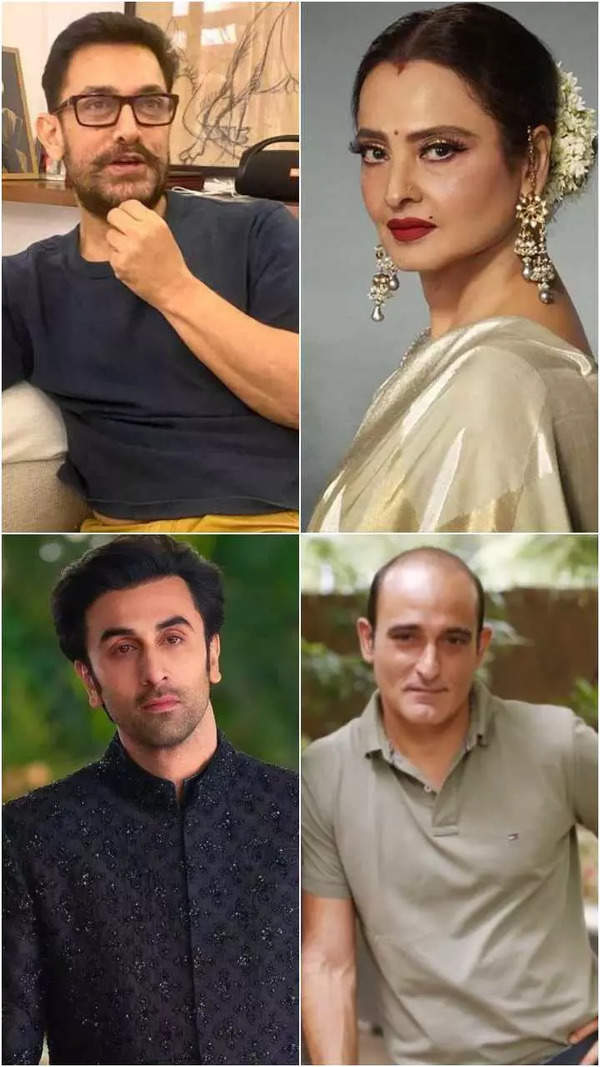- News
- entertainment
- english
- hollywood
- Chuck Russell: My goal is to make a film that uses the songs and dances of Bollywood to tell a universal story
Trending
This story is from August 3, 2017
Chuck Russell: My goal is to make a film that uses the songs and dances of Bollywood to tell a universal story
With films like 'The Mask', 'The Scorpion King' and 'A Nightmare on Elm Street 3: Dream Warriors' to his credit, you cannot bracket Chuck Russell into any one genre. The American filmmaker is now set to widen his horizon further, with a foray into mainstream Bollywood. With Vidyut Jammwal as his leading man, the director will be broaching the subject of poaching in 'Junglee', an action/adventure film to be shot in Kerala.

Chuck Russell
With films like 'The Mask', 'The Scorpion King' and 'A Nightmare on Elm Street 3: Dream Warriors' to his credit, you cannot bracket Chuck Russell into any one genre. The American filmmaker is now set to widen his horizon further, with a foray into mainstream Bollywood. With Vidyut Jammwal as his leading man, the director will be broaching the subject of poaching in 'Junglee', an action/adventure film to be shot in Kerala.
I've always been fascinated with world cinema and find myself excited to try new genres whenever possible. I find it a bit of a miracle that an emotionally truthful film can communicate joy or hope in any language. To me, that is the highest achievement in film…transcending language to touch audiences around the world. It is an opportunity to remind ourselves we are not so different after all.
'Junglee' is an action/adventure film with touches of comedy and romance. It's the story of a successful young veterinarian in Mumbai, who must return to an elephant preserve in the jungle, when the elephants he loved as a boy are in jeopardy from an international gang of poachers. My goal is to make a film that is true to India, but uses the music, dance and the wonderful artists in Bollywood to tell a universal story about returning to the natural world.

Honestly, there are advantages to both. I enjoy the sense of teamwork on smaller films, as you face these remarkable challenges in a very personal way. You have to solve problems creatively... which can lead to more original results. But there is also a thrill to leading the small army of a studio film. It’s a bit like being the ringmaster of a large circus. The secret to happiness on a studio film is balancing your passion to tell this particular story with a clear understanding of what the studio expects... and the flexibility required to please those responsible for costs. If all this is done in harmony, you can have a great experience and tell your story with quite a big bang.
I'm a big animal lover and have always seen animals as simply part of my cast. In fact, I’ve had producers wonder at my "casting sessions" to find the right animal. In 'Junglee', I hope to take all that a step further. Three elephants are key characters in this story and I hope to capture their personalities just as well as the human stars.
I've been engaged with Indian cinema for a few years now, as I've proposed other co-productions that require international casts. I've always felt there was great talent in Bollywood, and have visited Mumbai several times.
Hollywood is also star-driven, but as a director, some of the most fun I've had has been launching new stars. I feel that audiences are always looking for something new and original, so I tend to jump at the chance to give it to them. 'Junglee' is definitely that kind of an opportunity. I've told you I was inspired by this story when I first read it, but I was equally inspired by our leading man. From the time I met Vidyut Jammwal, I could imagine no one else in this role. He has a charm and good humour that is rarely combined with such natural physicality. In that way, it reminds me of meeting Dwayne Johnson for the first time, for his leading role on 'Scorpion King'. Certain things cannot be coached by a director, and that bit of charisma that makes a performance really shine is what we're looking for. I spent two days with Vidyut in Mumbai and see that potential.

I assume the rules are there to protect the animals and natural environment... which happens to be the theme of this film, so of course I support it. In the west, I've worked under similar guidelines with good results. I wouldn't put an animal at risk or under stress any more than any other member of my cast. Part of the responsibility of making this kind of film is improvising to what works best for the animals... and yes, going to CGI or other kinds of effects are a good option if that is not possible. In the past, I've changed a script to best play to what an animal actor already does best naturally.

As far as the red tape goes... I can only hope the AWBI understands our message and helps us move things along. But I certainly welcome their guidance in addition to my own standards.
Since 'Junglee' tackles the issue of poaching, are you prepared to question the system or the conditions that have allowed it to thrive? And does that make you anticipate trouble from that system? How tough is it to fight against poaching, globally?
Personally, I have no concerns about questioning the system of poaching and ivory sales. In fact, that is a large part of what’s drawn me to this project. While I understand that some feel they have no choice but to make a living this way, it is specifically our hope that this film will shed light on why this is a horrific practice, and generate constructive efforts to stop this from continuing.
I don't know if that's true. I'm quite impressed with Indian filmmakers, as they seem to express themselves with unique freedom, using high drama, comedy and dance unlike any other culture. The documentary space, however often requires funding and support from like-minded organizations. If that is available to Indian filmmakers, they are certainly capable, if inspired to do so.
'Junglee' is not a documentary, but my feeling is that a truly entertaining action/comedy has the potential to send a positive message to audiences that might normally avoid documentaries.
 'The Mask' is one of the most popular works of Russell
'The Mask' is one of the most popular works of Russell
I am familiar with Ganesha from the incredible artwork I've seen. I'm quite fascinated with mythology from various cultures... and have always believed God presents Himself to different cultures in different ways. I also see God in these animals. Maybe I can express a little of that in the film.
The fact that the positive spirit of animals is reflected in Hanuman, Ganesha and other deities means Indian culture recognizes that spirit. Perhaps the contradiction comes in the fact that it's easier to imagine that spirit helping us, rather than us actually helping earthly animals in our day to day lives. Simply being aware that buying ivory is dishonorable is a major step in putting an end to the problem of poaching. That's pretty easy, isn't it?

From 'A Nightmare On Elm Street' to 'The Mask', 'Eraser', or 'Scorpion King', film writers find it difficult to pin you down to a genre because your films are so vastly different from each other. Your next is not just a different genre but a different language as well. What are you doing helming a mainstream 'Bollywood' film after these projects? What space should we expect 'Junglee' to be in?
I've always been fascinated with world cinema and find myself excited to try new genres whenever possible. I find it a bit of a miracle that an emotionally truthful film can communicate joy or hope in any language. To me, that is the highest achievement in film…transcending language to touch audiences around the world. It is an opportunity to remind ourselves we are not so different after all.
'Junglee' is an action/adventure film with touches of comedy and romance. It's the story of a successful young veterinarian in Mumbai, who must return to an elephant preserve in the jungle, when the elephants he loved as a boy are in jeopardy from an international gang of poachers. My goal is to make a film that is true to India, but uses the music, dance and the wonderful artists in Bollywood to tell a universal story about returning to the natural world.
When our producer Priti Shahani sent me the original story, I knew almost immediately it was something special… an opportunity to use humour, heart and thrilling action to tell a tale that could address a global problem of the threat to these magnificent creatures.

As someone who first made a mark with small budget, indie films, what is better for you, creatively? A small film might not have a budget for your vision, but a big studio film might have less elbow room for your creativity.
Honestly, there are advantages to both. I enjoy the sense of teamwork on smaller films, as you face these remarkable challenges in a very personal way. You have to solve problems creatively... which can lead to more original results. But there is also a thrill to leading the small army of a studio film. It’s a bit like being the ringmaster of a large circus. The secret to happiness on a studio film is balancing your passion to tell this particular story with a clear understanding of what the studio expects... and the flexibility required to please those responsible for costs. If all this is done in harmony, you can have a great experience and tell your story with quite a big bang.
In Hollywood, films on the human-animal relationship are a very evolved genre now, with multiple sub-genres from comedy to drama to children’s films to films for 'grown-ups'. But Hindi films on the subject are limited, and well, tend to get quite syrupy. Some of us may remember movies such as 'Haathi Mera Saathi' and 'Safed Haathi' (do see them if you get the time), but there haven't been many of that genre to have made a mark. From more recent times, the most well-remembered animal character is perhaps a match-making pup, Tuffy, from the top-grossing 'Hum Apke Hain Koun'. What do you plan to bring to the Indian audience which is usually starved of coherent animal-centred stories?
I'm a big animal lover and have always seen animals as simply part of my cast. In fact, I’ve had producers wonder at my "casting sessions" to find the right animal. In 'Junglee', I hope to take all that a step further. Three elephants are key characters in this story and I hope to capture their personalities just as well as the human stars.
Before coming down to work here, how closely have you observed the Indian film industry? It is largely star-driven, though several story-driven films have recently gone to become hits. Your story is something Bollywood hasn’t touched in a long time. Given that background, what is the homework you come with, the approach you plan to take, which makes you think it will work with the mainstream audience?
I've been engaged with Indian cinema for a few years now, as I've proposed other co-productions that require international casts. I've always felt there was great talent in Bollywood, and have visited Mumbai several times.
Hollywood is also star-driven, but as a director, some of the most fun I've had has been launching new stars. I feel that audiences are always looking for something new and original, so I tend to jump at the chance to give it to them. 'Junglee' is definitely that kind of an opportunity. I've told you I was inspired by this story when I first read it, but I was equally inspired by our leading man. From the time I met Vidyut Jammwal, I could imagine no one else in this role. He has a charm and good humour that is rarely combined with such natural physicality. In that way, it reminds me of meeting Dwayne Johnson for the first time, for his leading role on 'Scorpion King'. Certain things cannot be coached by a director, and that bit of charisma that makes a performance really shine is what we're looking for. I spent two days with Vidyut in Mumbai and see that potential.

The Animal Welfare Board of India is also known for making shooting with animals difficult for filmmakers, with the result that a lot of films that want to include animals shoot such sequences abroad. How prepared are you to deal with AWBI's rules and red tape, and is shooting abroad or with visual effects for particular scenes also an option?
I assume the rules are there to protect the animals and natural environment... which happens to be the theme of this film, so of course I support it. In the west, I've worked under similar guidelines with good results. I wouldn't put an animal at risk or under stress any more than any other member of my cast. Part of the responsibility of making this kind of film is improvising to what works best for the animals... and yes, going to CGI or other kinds of effects are a good option if that is not possible. In the past, I've changed a script to best play to what an animal actor already does best naturally.

As far as the red tape goes... I can only hope the AWBI understands our message and helps us move things along. But I certainly welcome their guidance in addition to my own standards.
Since 'Junglee' tackles the issue of poaching, are you prepared to question the system or the conditions that have allowed it to thrive? And does that make you anticipate trouble from that system? How tough is it to fight against poaching, globally?
Personally, I have no concerns about questioning the system of poaching and ivory sales. In fact, that is a large part of what’s drawn me to this project. While I understand that some feel they have no choice but to make a living this way, it is specifically our hope that this film will shed light on why this is a horrific practice, and generate constructive efforts to stop this from continuing.
In the documentary space, wildlife or nature films made in India by Indians are a dying breed. The best nature films have been made by foreign filmmakers and by foreign studios. And now Bollywood is entering this domain, with you at the helm. Why do you think Indian filmmakers are not able to harness our own wildlife onto celluloid effectively?
I don't know if that's true. I'm quite impressed with Indian filmmakers, as they seem to express themselves with unique freedom, using high drama, comedy and dance unlike any other culture. The documentary space, however often requires funding and support from like-minded organizations. If that is available to Indian filmmakers, they are certainly capable, if inspired to do so.
'Junglee' is not a documentary, but my feeling is that a truly entertaining action/comedy has the potential to send a positive message to audiences that might normally avoid documentaries.

'The Mask' is one of the most popular works of Russell
If you have any degree of familiarity with Indian mythology, you may be familiar with the elephant-god Ganesha, or Indra's vehicle, the elephant Airavat. Despite such cultural embedding, we aren't quite there in terms of sensitivity or effort when it comes to keeping these grand animals safe. Do such contradictions surprise you?
I am familiar with Ganesha from the incredible artwork I've seen. I'm quite fascinated with mythology from various cultures... and have always believed God presents Himself to different cultures in different ways. I also see God in these animals. Maybe I can express a little of that in the film.
The fact that the positive spirit of animals is reflected in Hanuman, Ganesha and other deities means Indian culture recognizes that spirit. Perhaps the contradiction comes in the fact that it's easier to imagine that spirit helping us, rather than us actually helping earthly animals in our day to day lives. Simply being aware that buying ivory is dishonorable is a major step in putting an end to the problem of poaching. That's pretty easy, isn't it?

End of Article
FOLLOW US ON SOCIAL MEDIA








